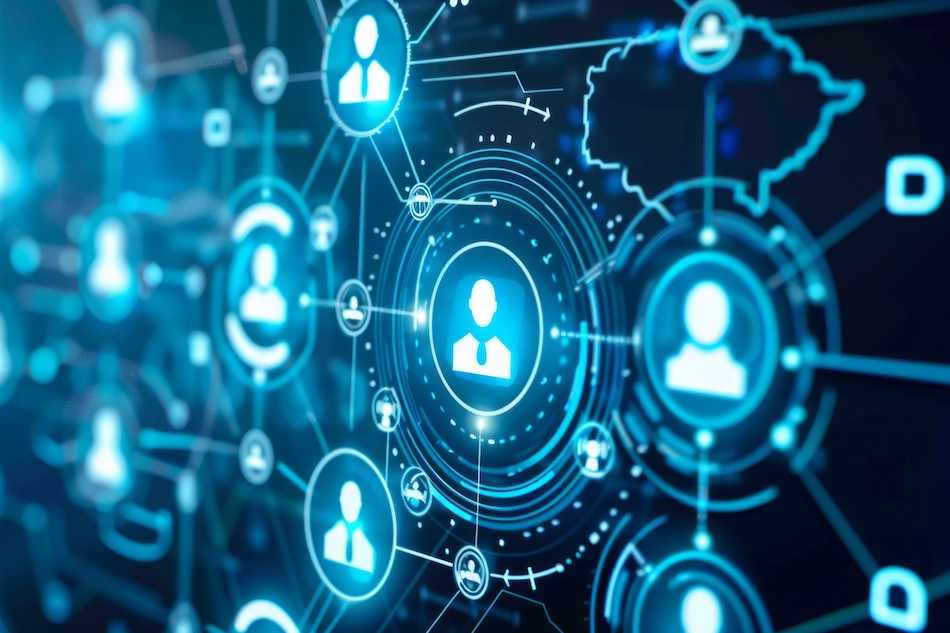“When you talk to a person in 2035, you are talking to someone who is a combination of biological and non-biological intelligence.” With these words, the American author and inventor Ray Kurzweil once described the rise of AI.
Did he hit the nail on the head?
Artificial intelligence is currently undergoing rapid development and is taking on new forms and dimensions every year.
Be it in medicine, education or the automotive industry – AI now plays a role in almost every area of daily life and is providing a breath of fresh air in a wide variety of fields.
The field of human resources is no exception.
AI-supported systems have the potential to fundamentally change HR management and make a significant contribution to attracting new, qualified talent.
However, this enormous potential is also associated with a number of risks…
It works as if by itself!
HR departments are the backbone of every company, but are often overloaded with routine administrative tasks such as managing application documents, planning and conducting interviews and onboarding new employees.
AI-supported tools can help to manage these repetitive tasks more efficiently.
Chatbots based on artificial intelligence can answer applicant inquiries, while automated systems sort and evaluate application documents.
Human agents can thus focus on the more strategic aspects of their day-to-day business and pay more attention to the tasks that can quickly get lost in the dense jungle of incoming applications.
Revolution in the recruitment process
A detailed and thorough recruitment process guarantees a company that only the most suitable talent joins its ranks.
In a time before the rise of artificial intelligence, however, selecting the best candidates was usually time-consuming and characterized by subjective decisions.
AI-supported systems can analyze large volumes of application documents in a very short time, taking into account factors such as qualifications, experience and cultural fit.
In addition, algorithms can recognize patterns based on candidates’ previous careers and make predictions about their success in the company.
This leads to more objective decisions and a more efficient selection of the best talent.
AI & HR
Artificial intelligence can give HR employees a powerful helping hand – and thus bring about positive change throughout the company.
By identifying individual training needs, analysing performance data and creating personalized learning programs, AI systems can provide targeted support for employees to develop and grow.
Employee retention and engagement also benefit from the use of AI applications.
These can sift through employee data and thus recognize early signs of dissatisfaction – and suggest appropriate countermeasures.
This includes, for example, surveys and sentiment analysis to gain a comprehensive impression of the working atmosphere.
Strong employee engagement leads to increased morale and productivity – and an overall better atmosphere in the company.
But…
All these aspects may sound all well and good – but the use of AI in HR is not all plain sailing.
There are important questions and challenges regarding ethics and data protection that a company will have to deal with sooner or later when expanding its AI strategies.
When using AI, companies should ensure that they handle sensitive employee data responsibly and guarantee that the data collected is protected and used transparently.
It is also important to ensure that the algorithms, which do important work in the initial stages of the application process, act fairly and impartially in order to continue to avoid discrimination.
What‘next?
The joint future of artificial intelligence and human resources already promises to be a fruitful symbiosis.
The continuous development of AI systems and applications will lead to more and more innovative solutions that will further transform the HR sector.
Any company that adopts these technologies at an early stage and can thus implement more efficient processes and offer a better employee experience will undoubtedly gain a valuable competitive advantage.
In conclusion, one thing is certain: artificial intelligence has the potential to fundamentally change the field of human resources. From automating repetitive routine tasks to improving the recruitment process and employee development, AI is already proving to be a real boon for many HR teams. Nevertheless, companies need to be aware of the ethical challenges and data protection concerns – and despite all the technological wizardry, should never forget what the “H” in “HR” stands for: Humans.
Cover picture: CYBERUSS/Adobe Stock
